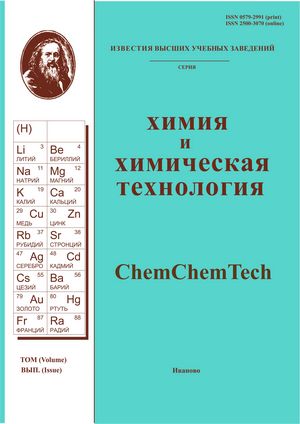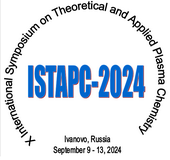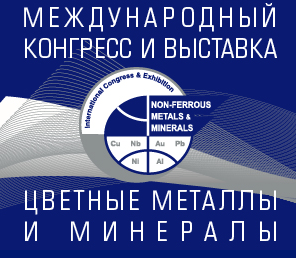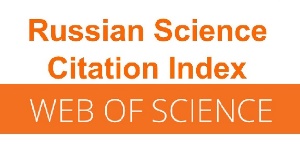КИСЛОТНЫЕ И КАТАЛИТИЧЕСКИЕ СВОЙСТВА Mg-СОДЕРЖАЩИХ ЦЕОЛИТНЫХ КАТАЛИЗАТОРОВ В ПРОЦЕССЕ ПРЕВРАЩЕНИЯ ПРОПАНА В ОЛЕФИНОВЫЕ УГЛЕВОДОРОДЫ
Аннотация
В данной работе исследована конверсия пропана в олефиновые углеводороды на цеолитном катализаторе структурного типа ZSM-5, модифицированном магнием. Низшие олефины (С2-С4) являются одним из ключевых сырьевых компонентов нефтехимических процессов, в частности в производстве полимерных материалов (полиэтилена, полипропилена), а также разнообразных ценных продуктов: сополимеров этилена с бутенами, метил-трет-бутилового эфира, акрилонитрила и др. Постоянный рост потребности в низших олефинах в значительной степени определяется быстрым увеличением потребления полиэтилена и полипропилена и расширением сферы их технологического применения. Каталитическое превращение низших алканов в олефиновые углеводороды с использованием цеолитсодержащих систем являются одним из перспективных методов получения низших мономеров. Методом термопрограммированной десорбции аммиака изучены кислотные свойства Mg-содержащих цеолитных катализаторов и установлено, что катализаторы отличаются друг от друга распределением и соотношением кислотных центров разного типа. Показано, что введение в состав катализатора оксида магния приводит к повышению активности и селективности катализатора в отношении образования олефиновых углеводородов из пропана. Установлена зависимость активности и селективности катализаторов от содержания в них магния. Обнаружено, что максимальное количество олефиновых углеводородов образуется в присутствии цеолита, содержащем 4,0% оксида магния. Проведено исследование времени стабильной работы наиболее активной каталитической системы в процессе получения олефиновых углеводородов из пропана. Показано, что после 96 ч непрерывной работы катализатора 4,0% MgO/ВКЦ-100 селективность образования олефиновых углеводородов составляет более 68% при конверсии пропана 45%.
Для цитирования:
Восмериков А.А., Восмерикова Л.Н., Восмериков А.В. Кислотные и каталитические свойства Mg-содержащих цеолитных катализаторов в процессе превращения пропана в олефиновые углеводороды. Изв. вузов. Химия и хим. технология. 2023. Т. 66. Вып. 11. С. 42-49. DOI: 10.6060/ivkkt.20236611.2t.
Литература
Sattler J.J., Ruiz-Martinez J., Santillan-Jimenez E., Weckhuysen B.M. Catalytic dehydrogenation of light al-kanes on metals and metal oxides. Chem Rev. 2014. V. 114. N 20. P. 10613-10653. DOI: 10.1021/cr5002436.
Ren T., Patel M., Blok K. Energy use in steam cracking and alternative processes. Energy. 2006. V. 31. N 4. P. 425-451. DOI: 10.1016/j.energy.2005.04.001.
Chen S., Chang X., Sun G.D., Zhang T.T., Xu, Y.Y., Wang Y., Pe, C.L., Gong J.L. Propane dehydrogenation: Catalyst development, new chemistry, and emerging technologies. Chem. Soc. Rev. 2021. V. 50. P. 3315-3354. DOI: 10.1039/D0CS00814A.
Cheng Z., Qian S. Research Progress on Propylene Preparation by Propane Dehydrogenation. Molecules. 2023. V. 28. N 8. P. 3594-3607. DOI: 10.3390/molecules28083594.
Zeeshan N. Light alkane dehydrogenation to light olefin technologies: A comprehensive review. Rev. Chem. Eng. 2015. V. 31. P. 413-436. DOI: 10.1515/revce-2015-0012.
Kayumov N.A., Nazarov A.A., Ponikarov S.I., Vilohina P.V. Modern industrial technological processes of hydro-carbon dehydrogenation and their instrumentation. Vestn. Kazan. Tekhnol. Univ. 2013. V. 16. N 15. P. 303-308 (in Russian).
Amghizar I., Vandewalle L.A., Van Geem K.M., Marin G.B. New trends in olefin production. Engineering. 2017. V. 3. P. 171-178. DOI: 10.1016/J.ENG.2017.02.006.
Akah A., Al-Ghrami M. Maximizing propylene production via FCC technology. Appl. Petrochem. Res. 2015. V. 5. N 4. P. 377-392. DOI: 10.1007/s13203-015-0104-3.
Sattler J.J.H.B., Ruiz-martinez J., Santillan-Jimenez E., Weckhuysen B.M. Catalytic dehydrogenation of light alkanes on metals and metal oxides. Chem. Rev. 2014. V. 114. P. 10613-10653. DOI: 10.1021/cr5002436.
Monai M., Gambino M., Wannakao S., Weckhuysen B.M. Propane to olefins tandem catalysis: a selective route towards light olefins production. Chem. Soc. Rev. 2021. V. 50. P. 11503-1529. DOI: 10.1039/D1CS00357G.
Belov G.P. Catalytic synthesis of higher olefins from ethylene. Kataliz Promsti. 2014. N 3. Р. 13-19 (in Rus-sian).
Sakhibgareev S.R., Tsadkin M.A., Badikova A.D., Gumerova E.F. Catalysts for destruction of hydrocarbon raw materials based on barium chloride. ChemChemTech [Izv.Vyssh. Uchebn. Zaved. Khim. Khim. Tekhnol.]. 2022. V. 65. N 9. P. 64-73. DOI: 10.6060/ivkkt.20226509.6535.
Vosmerikova L.N., Vosmerikov A.A., Vosmerikov A.V. Conversion of propane to olefinic hydrocarbons over ze-olite catalysts modified with manganese. Neftegazokhimiya. 2022. V. 4. P. 51-56 (in Russian). DOI: 10.24411/2310-8266-2022-4-51-56.
Vafi L., Karimzadeh R. Effect of phosphorus on me-thane production in LPG catalytic cracking over modi-fied-structure ZSM-5. J. Nat. Gas. Sci. Eng. 2015. V. 27. P. 751-756. DOI: 10.1016/j.jngse.2015.09.019.
Shkuropatov A.V., Knyazeva E.E., Ponomarev O.A., Ivanova I.I. Synthesis of hierarchical MWW zeolites and their catalytic properties in petrochemical processes (review). Petrol. Chem. 2018. V. 58. N 10. P. 815-826. DOI: 10.1134/S0965544118100158.
Lü Q., Lin X., Wang L., Gao J., Bao X. On-stream stability enhancement of HZSM-5 based fluid catalytic cracking naphtha hydro-upgrading catalyst via magnesium modification. Catal. Commun. 2016. V. 83. P. 31-34. DOI: 10.1016/j.catcom.2016.05.005.
Kosinov N., Liu, C., Hensen E.J.M., Pidko E.A. Engineering of Transition Metal Catalysts Confined in Zeo-lites. Chem. Mater. 2018. V. 30. P. 3177-3198. DOI: 10.1021/acs.chemmater.8b01311.
Chen C., Zhang Q., Meng Z., Li C., Shan H. Effect of magnesium modification over H-ZSM-5 in methanol to propylene reaction. Appl. Petrochem. Res. 2015. V. 5. P. 277-284. DOI: 10.1007/s13203-015-0129-7
Delin Y., Yu S., Aihua X., Chuanfu W., Ping M., Qi S. Tuning of magnesium distribution in ZSM-5 via different impregnation methods and its effect on methanol to propene reaction. Ind. Eng. Chem. Res. 2019. V. 50. N 13. P. 5112-5120. DOI: 10.1021/acs.iecr.8b04434.
Vosmerikova L.N., Markova A.A., Vosmerikov A.A., Vosmerikov A.V. Reception of olefinic hydrocarbons from propane on zeolites of type ZSM-5 with different silicamodule. Neftepererab.Neftekhimiya. Nauch.-Tekhn. Dostizh. Pered. Opyt. 2020. N 5. P. 26-31 (in Russian). DOI: 10.1063/5.0035063.
Corma A. Inorganic Solid Acids and Their Use in Acid-Catalyzed Hydrocarbon Reactions. Chem. Rev. 1995. V. 95. N 3. P. 559-614. DOI: 10.1021/cr00035a006.
Liu H., Li Y., Shen W., Bao X., Xu Y. Methane dehydroaromatization over Mo/HZSM-5 catalysts in the ab-sence of oxygen: effects of silanation in HZSM-5 zeolite. Catal. Today. 2004. V. 93. P. 65-73. DOI: 10.1016/j.cattod.2004.05.014.
Hadjiivanov K. Chapter two – Identification and Characterization of Surface Hydroxyl Groups by Infrared Spectroscopy. Adv. Catal. 2014. V. 57. P. 99-318. DOI: 10.1016/B978-0-12-800127-1.00002-3.
Zhai D., Li Y., Zheng H., Zhao L., Gao J., Xu C., Shen B. A firstprinciples evaluation of the stability, accessibil-ity, and strength of Brønsted acid sites in zeolites. J. Catal. 2017. V. 352. P. 627-637. DOI: 10.1016/j.jcat.2017.06.035.
Brovko R.V., Lakina M.E., Sulman M.G., Doluda V.Yu. Study of the effect of H-ZSM-5 zeolite acidity on the process of catalytic transformation of n-butanol into hydrocarbons. ChemChemTech [Izv.Vyssh. Uchebn. Zaved. Khim. Khim. Tekhnol.]. 2022. V. 65. N 4. P. 87-92. DOI: 10.6060/ivkkt.20226504.6509.



















